Three characteristic industries boost rural revitalization
2024-12-29
In early winter, farmers are busy in the fields of Hujukeng village, Dabujiang township of Yongxing county. Oilseed rape is the first business card for the development of industries in Hujukeng village.
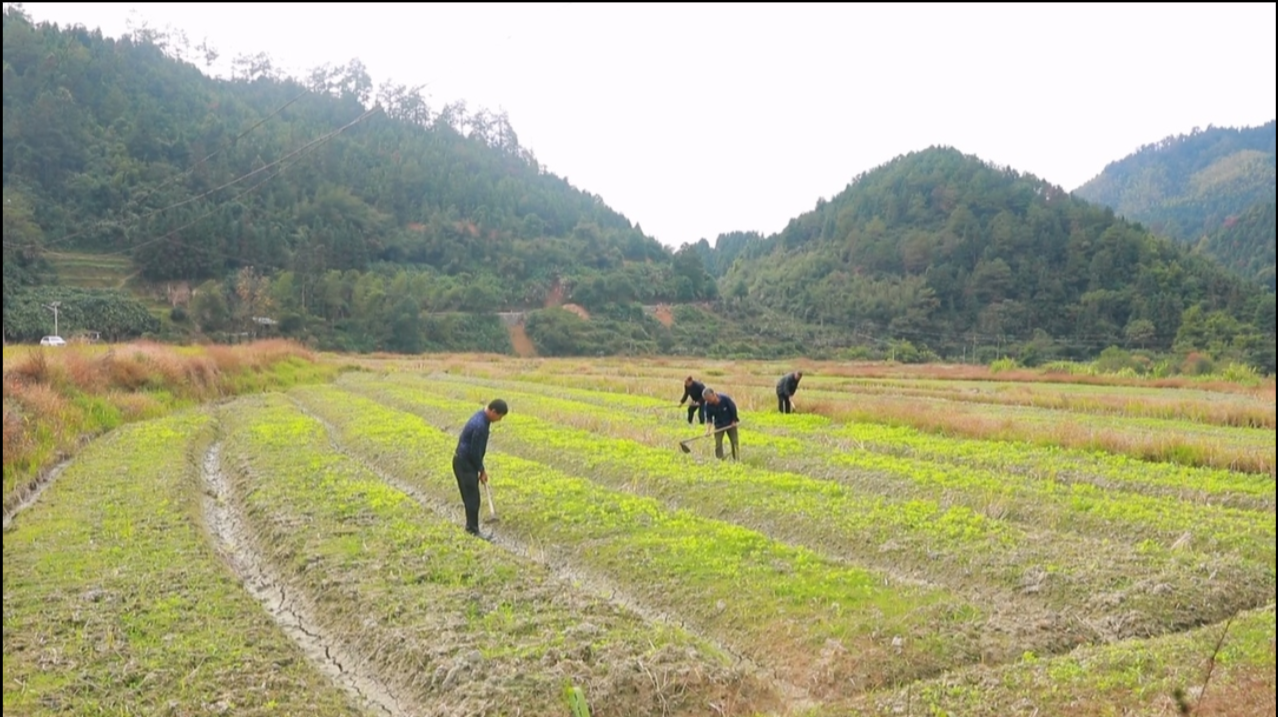
Oilseed rape in the field is growing well and villagers are busy taking care of them. Due to climate conditions, only one season of rice is planted locally each year. After rice harvesting, the farmland becomes idle during the autumn and winter seasons.
This year, led by the village government, the village planted oilseed rape in the idle farmland to increase income and create job opportunities.
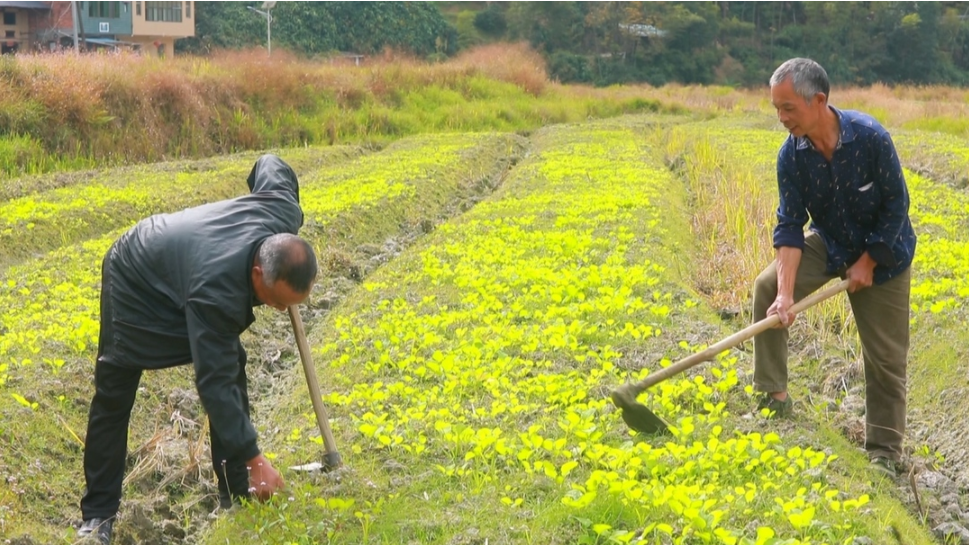
Wu Lifen, secretary of the village, introduced that the village planted over 100 mu (6.67 hectares) of oilseed rape this year. If oilseed rape comes in well, the yield can reach over 50 kg of rapeseed, with a net profit of 30,000 yuan.
The bamboo leaves for wrapping up zongzi are the second business card of the village. Local villagers plant bamboo in front of and behind their houses. Based on its unique mountain resources, the village plans to develop bamboo leave industry through a development mode of base plus farmers.
Wu Lifen said that since the township has a bamboo leave processing factory, villagers don’t have to worry about sales and prices. The village planted 50 mu (3.33 hectares) of bamboo this year, which can be harvested three years later. If it is harvested three times a year, the income per mu (0.067 hectares) can reach 8,000 yuan.
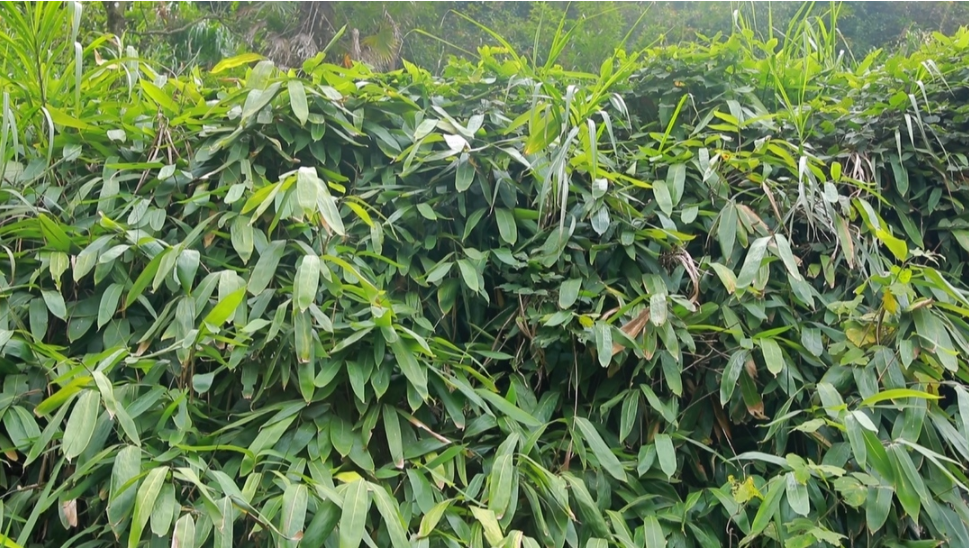
Over one month ago, ginger was harvested in the village. Liao Zhengwang, head of the village cooperative, returned to his hometown to start a business and led farmers to develop ginger industry.
Led by Liao Zhengwang, the ginger planting area in the village reached 100 mu (6.67 hectares), helping over 30 households and making ginger the third industry of the village.
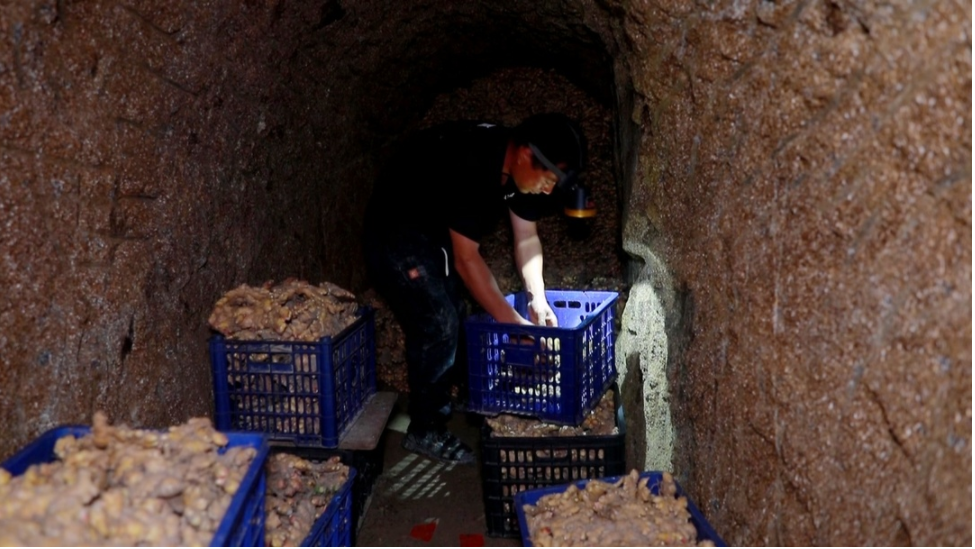
The average yield per mu (0.067 hectares) is 2,250 kg, and there are now 225,000 kg of ginger in storage. Next year, when the price is just over 6 yuan per kg, it can bring an income of about 1.3 million yuan.
Hujukeng Village is a typical mountainous village with backward infrastructure and weak industrial foundation. This year, the assistance team tried to turn resources, industries, policies, investment and others into the village collective economy.
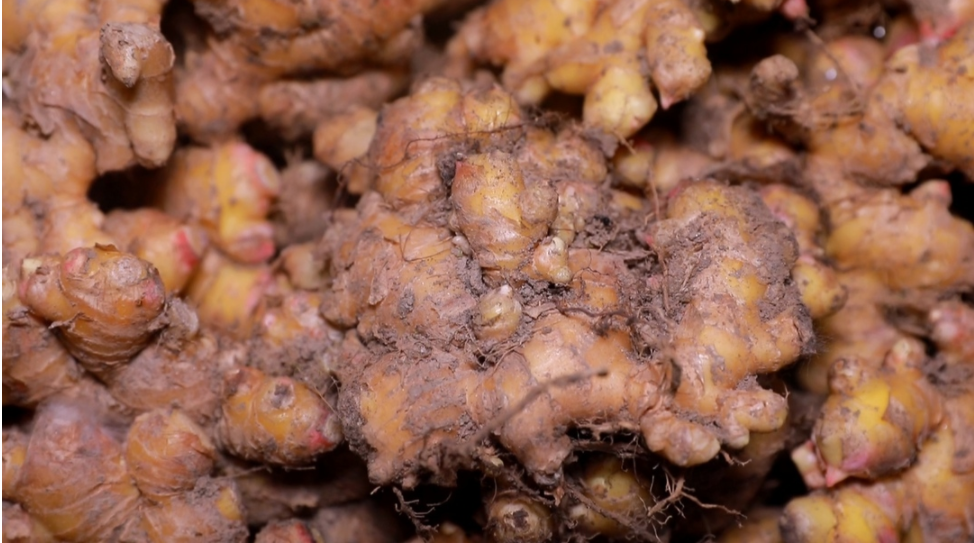
Relying on the local ecological environment, the village has developed three industries of oilseed rape, ginger and bamboo leaves.
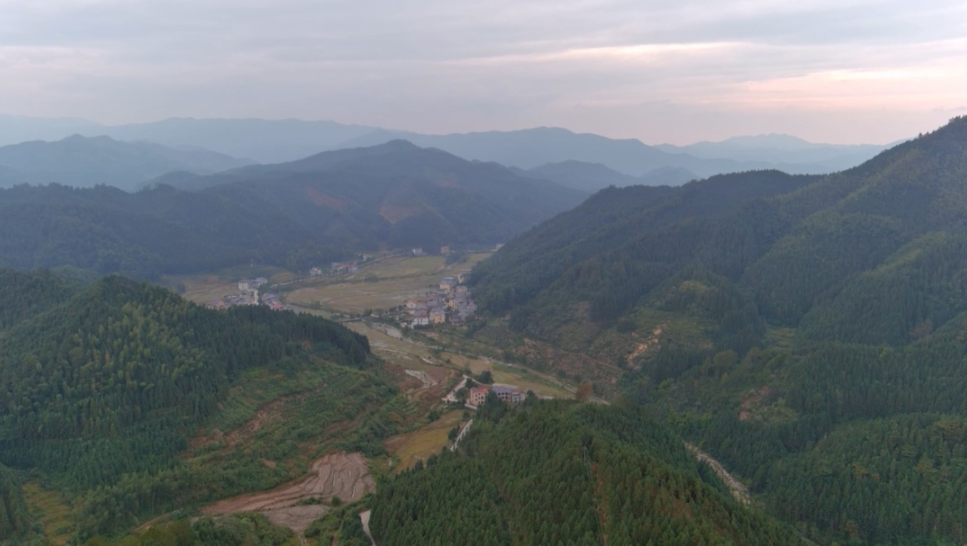
By developing characteristic industries, every villager can increase their annual income of about 50,000 yuan. With flourishing characteristic industries, this year, the village collective economic income is expected to reach 130,000 yuan.
Chinese source: voc.com.cn




